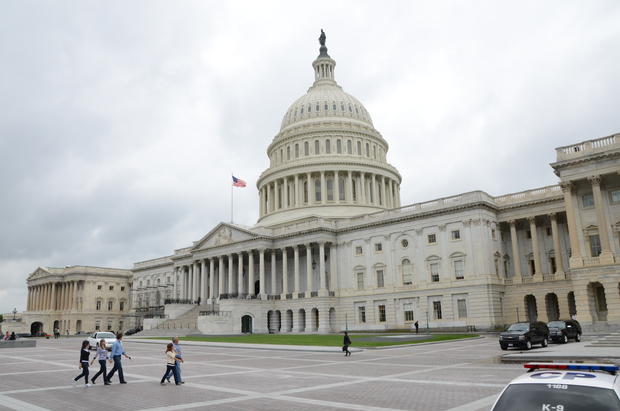Democrats plan payroll tax cut showdown
President Obama and Senate Democrats plan this week to force Republicans to publicly declare their opposition to cutting taxes for the working class if it means raising taxes on the wealthiest Americans.
Senate Democrats plan to schedule a vote this week on a bill that would extend the expiring Social Security payroll tax cut - and pay for the extension by a 3.25 percent tax on income in excess of $1 million.
The bill, sponsored by Sen. Bob Casey of Pennsylvania, is almost certain to fail in the Senate. But for Democrats, it serves as a vessel to argue that Republicans are more concerned with the so-called "one percent" of high earners than the 160 million working Americans they say would see a tax cut under the bill.
President Obama warned last week that if the payroll tax is not extended, a family making $50,000 per year would see a tax hike of $1,000. He urged Republicans in Congress not to "be a Grinch" and "vote to raise taxes on working Americans during the holidays."
The measure would extend and expand the current payroll tax holiday, which set to expire at the end of the year. It would increase the payroll tax cut for employees to 3.1 percent and cut employer payroll taxes from 6.2 percent to 3.1 percent.
Congressional Republicans have signaled that they could support an extension of the payroll tax cut, but they say this vote is all about political posturing. They point to the fact that it is paid for by raising taxes on the highest-income Americans.
"Republicans have said that extending the payroll tax break is a potential area of common ground, but coupling it with a job-killing tax hike on small businesses makes no sense whatsoever. It looks like Washington Democrats are playing politics with American jobs - again," said Michael Steel, spokesman for House Speaker John Boehner.
Steel points to a Joint Tax Committee estimate that the tax hike would hit one-third of small business income and a Treasury Department finding that it would hit 41 percent of business income reported in individual returns.
Senate Democrats argue that the bill shows they are the real party of small business, since it cuts the payroll tax in half for 98 percent of small businesses. They point to findings that the bill could create more than 50,000 jobs per month.
Democrats are prepared to press the political argument. After Arizona Republican Jon Kyl said on Fox News Sunday that he would oppose the bill, arguing that it won't create jobs, Democratic Sen. Dick Durbin shot back, "I can't believe, that at a time when working families in this country are struggling paycheck to paycheck, when we need them to have the resources to buy things in our economy, to create wealth and profitability and more jobs, that the Republican position is they'll raise the payroll tax on working families? I think that just defies logic."
And on a conference call with reporters Monday, Senate Majority Leader Harry Reid said, "It's hard to imagine Republicans being more out of step with the American people than they are right now. Americans want us to cut taxes on the middle class and ask millionaires to pay their fair share."
In an interview with the Washington Post Monday, Democratic Sen. Charles Schumer of New York said Democrats will make inequality a central issue in the 2012 elections. Even if they oppose the "Occupy" protesters, Schumer said, middle class Americans feel like "part of the 99 percent."
"The number one fact of our political economy for the last decade is declining middle class incomes," the Democratic messaging guru told the Post. "When the American Dream is no longer a virtual certainty to most Americans, it becomes a different country."
Mark Zandi, chief economist of Moody's Analytics who also advised Arizona Sen. John McCain's 2008 presidential campaign, warned a congressional roundtable last month that the U.S. economy "will be back in a recession" without an extension of the payroll tax holiday.
Following the almost certain defeat of the Senate bill, lawmakers will reconsider how to pass a payroll tax extension, part of the many items on the agenda before the end of the year. (Others include funding the government, possible extension of unemployment insurance, dealing with the alternative minimum tax and the so-called "Doc Fix" and the annual Defense authorization bill.) Democrats and the White House have signaled they would be open to extending the tax cut, which would cost the government an estimated $115-billion, even if the extension was not immediately paid for.
